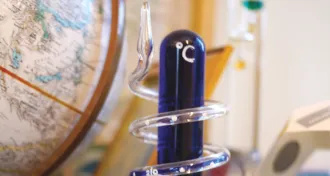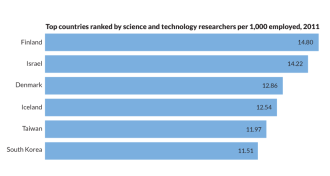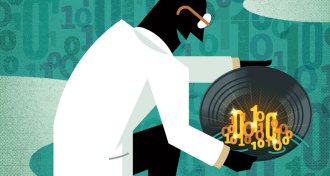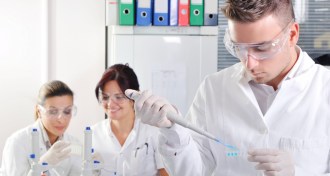Science & Society
Sign up for our newsletter
We summarize the week's scientific breakthroughs every Thursday.
-
 Science & Society
Science & SocietyEnjoy scientific curios collected over decades
Explore a modern scientist's curiosity cabinet.
-
 Science & Society
Science & Society‘This Idea Must Die’ singles out scientific theories ready for retirement
Researchers and writers weigh in on theories getting in the way of scientific progress in this collection of essays.
-
 Chemistry
ChemistryBrute-force chemistry study retracted
The journal Science has retracted a notable 2011 chemistry study in which authors reported a brawny method to break sturdy chemical structures.
By Beth Mole -
 Psychology
PsychologyScientists of a feather flock together
When it comes to major scientific issues such as global warming and GMOs, scientists and the public don’t see eye to eye. It might be because socially, they don’t see each other at all.
-
 Science & Society
Science & SocietyU.S. research workforce lags by some measures
Scientists’ share of total employment is lower in United States than in 16 other countries.
-
 Science & Society
Science & SocietySteven Weinberg looks back at rise of scientific method
Steven Weinberg’s new book ‘To Explain the World’ illustrates the difficulty of the development of modern science.
-
 Science & Society
Science & SocietyFinalists chosen to compete in the 2015 Intel Science Talent Search
Teens from 18 states will soon face off in the finals of the 2015 Intel Science Talent Search, the nation’s most prestigious science research competition for high school seniors.
By Sid Perkins -
 Earth
Earth‘Island on Fire’ recounts enormous 18th century eruption
The 18th century eruption of Iceland’s Laki volcano spewed sulfurous gases that briefly cooled the globe and probably contributed to the early deaths of tens of thousands of people.
By Sid Perkins -
 Science & Society
Science & SocietySmell circuitry, stalled stem cells and more reader feedback
Readers discuss a journal's publishing practices, ask about the human sense of smell and weigh in on their favorite picks from our Top 25 stories of the year.
-
 Science & Society
Science & SocietyContemplating the coming of the drones
Editor in Chief, Eva Emerson, contemplates the pros and cons of small drones flocking to our skies and the science behind them, discussed in this issue's feature on animal flight research.
By Eva Emerson -
 Science & Society
Science & SocietyBig data studies come with replication challenges
As science moves into big data research — analyzing billions of bits of DNA or other data from thousands of research subjects — concern grows that much of what is discovered is fool’s gold.
-
 Science & Society
Science & SocietyAttitude, not aptitude, may contribute to the gender gap
Does talent or hard work matter most? A new survey suggests an emphasis on genius predicts how many women end up in a field of study.